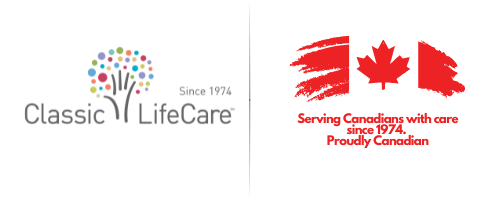Supporting People with ALS

Thanks to the ALS Ice Bucket Challenge, over the past few months, the disease amyotrophic lateral sclerosis (ALS) has become part of public consciousness.
While ALS is a neurodegenerative disorder that results in as many as 2 deaths per 100,000 people each year, the disease still has no treatment or cure.
Also known as motor neuron disease, ALS is characterized by rapidly progressive weakness due to the degeneration of motor neurons. Although motor neuron disease is usually fatal, some people who have been diagnosed with the condition such as Stephen Hawking or Victoria BC writer Alicia Priest manage to continue to go about accomplishing their life’s work.
An ALS diagnosis presents many challenges for families
For families, however, an ALS diagnosis presents many challenges. The disease progresses rapidly. A loved one such as spouse, parent, or, increasingly a child, will have difficulty performing basic tasks. Soon, evening swallowing will be a challenge.
This is where Andrea Warren and her team can help provide some respite during what can be a gruelling journey.
Warren is the Executive Leader of Vancouver-based home care provider Classic Lifecare. She and her team have long experience providing home support for many complex illnesses such as ALS. Warren herself has overcome serious illness, and has come face-to-face with her own mortality several times.
How do you help families experiencing ALS?
Sometimes the most important thing our health care workers can do is be in the home for a few hours so the family members can take a break or get out of the house.
Sometimes what we can do is give a client in a very uncontrollable situation a bit of control. Our clients tell us exactly what they want their care to look like and we provide that.
It’s often as simple as providing personal care so family members can stay family members rather than becoming caregivers.
How is caring for some experiencing ALS different than caring for people living with other medical conditions?
We certainly don’t treat a client any differently based on their diagnosis. We try to focus on the person and their specific needs, not on their diagnosis.
Whether someone is living with cancer or Alzheimer’s disease or ALS, we treat everyone the same.
In terms of the actual health care of an individual with ALS, our health care workers are prepared under the supervision of clinical nursing supervisors to address the symptoms associated with ALS. It’s a tough diagnosis because there is no deficit to your brain with ALS.
We see physical symptoms on the outside but it’s so hard to imagine what’s going on inside that person’s mind.
The most important thing we can do providing homecare is to follow the specific wishes of the individual and their family so they can cope with everything that’s going on.
Having worked with a lot of people with ALS, we find there is often a sense of hopelessness because of the terminal nature of ALS. Even if we can alleviate some of their stress so the time they have left is as comfortable as possible, that’s what we do.
Is caring for someone experience ALS just providing for their basic healthcare needs? Is it purely logistic, or is there a more spiritual aspect to this care?
It all depends how that client wants their experience to be. It can be a very spiritual process, depending on that individual. Every case is different for us because every client is an individual with a unique personality and unique wishes.
Andrea, you yourself have recovered from critical illness. What was the most challenging part about your diagnosis?
I began suffering from extreme fatigue, fluid retention, yellowing of my skin and eyes, severe itchiness and short term memory loss. My doctor determined my liver was failing, and I was diagnosed with Auto Immune Hepatitis. I spent months in the hospital as my body slowly shut down. I could no longer engage in daily living without the assistance of a caregiver.
So, while I have recovered now (I have actually had three liver transplants), I do have a lot of empathy for families living with critical illness.
The most challenging part of a critical illness diagnosis is being faced with your own mortality. It’s often difficult for a 95-year-old to accept a loss of independence.
I think it’s even harder for a 20-year-old, 30-year-old, 40-year-old who suddenly can’t drive, cook, bathe.
It’s also incredibly difficult to see the stress your family experiences. You feel their sense of hopelessness and feel responsible for it.
I think the families of someone with ALS experiences a complete feeling of helplessness. It’s not easy.
How did you keep going? How does your experience inform your professional role at Classic LifeCare?
My family and friends keep me going. I have a great support network. My experience showed me the value of support groups for those who don’t have a great support system, because it really does take a community for someone to get through.
Professionally, my experience has made me more empathetic to what people go through. I know the frustration of the loss of independence.
So when I go out to do an assessment of a new client, I can really empathize with their journey, no matter what stage they are at.
